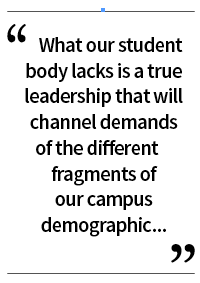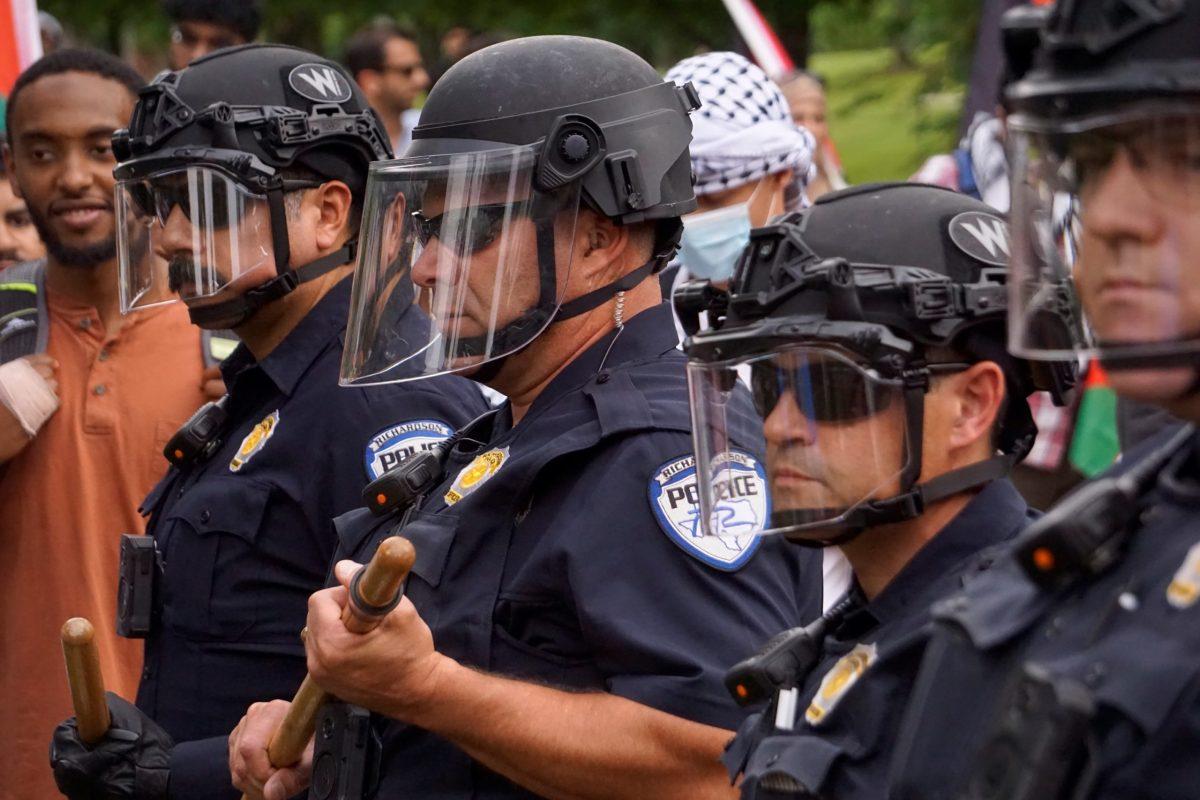Student apathy toward campus issues is often a direct consequence of passive leadership.
Student bodies across the nation have boasted of widespread activist endeavors in the past, which include fighting for civil rights and protesting against the Vietnam War.
Yet, as arguably the most-informed generation to date slowly trickles into the work force, it leaves behind a legacy of apathy toward activism and awareness on college campuses.
The story isn’t very different at UTD.
In the five years I’ve been here, the best voter turnout in the Student Government elections was in 2014 at 13 percent of the student population in a tight race for the SG president and vice president.
Part of the reason for low voter turnout happens to be the lack of interest among the student body toward any issue on campus that doesn’t concern them.
Evidence of this apathy is visible from the small student turnout at SG meetings and events and even in campus-wide surveys that typically receive very few responses.
Surveys conducted by SG typically have somewhere between 100 to 250 votes according to SG records, and only 100 student responses are required for a survey to be considered representative of the student body, even by the UT System. The recent survey concerning concealed carry on campus was a rare exception with 700 responses, which is still only about 3 percent of the student body.
Another explanation for low voter turnout could be attributed to the university’s commuter culture that hasn’t quite gone away, despite a burgeoning freshman population each year.
While the lack of interest among the current students might well be responsible for the poor turnout, it isn’t fair to lay all the blame on the student body alone. Candidates running for Senate are equally to blame for not getting out there and engaging with their constituents.
All caandidates can potentially engage with students and campaign from the day they file their nominations until the Friday before elections begin, according to SG election bylaws. Technically, that means, if they filed the very first day nominations opened up, they would have three full weeks to campaign.
This year, there were 67 names on the ballot for 39 positions on the Senate. Both SG president and vice president positions, as well as the senior seats, were uncontested. However, when elections opened up online on March 9, more than a few names on the ballot were unfamiliar and there was no way to know what the candidates were promising the students.
The onus of making an informed decision before casting a vote is on the student body, said four-time senator Katie Truesdale.
Truesdale, who herself ran a heated campaign last year against current SG president Brooke Knudtson, said candidates running for senate should be proactive in reaching out to their constituents but aren’t necessarily obliged to do so in any way. If students want to know who they’re voting for, they should seek out the candidates to know what they stand for, she said.
However, with no open houses, no SG debate and no webpage that identified the candidates and their platforms, how was the student body expected to seek out these candidates? Until the ballot opened up, students didn’t know who was running for the other senator positions.
On the ballot, there were two sentences on what the two tickets stood for, but other than that, there was no extensive information on candidate platforms..
Truesdale and Briana Lemos, director for student development, both said that uncontested races can sometimes have less excitement around them, but candidate campaigning levels vary each year.
This year, most candidates on the ballot filed their paperwork at the last minute leaving them two days to campaign, Lemos said.
The SG debate, typically between the candidates for president and vice president, was canceled because the race for both those positions was uncontested and candidates for other senate positions didn’t do much to reach out. SG did its best in advertising dates for filing nominations and election dates on media publications, digital signage and emails to students, but individual campaigns depend on the culture of the candidates, Truesdale said.
The fact that candidates waited until the last minute was due to incomplete paperwork in several cases and is in no way a reflection on their commitment toward the student body or the senate, Lemos said. It only means senators and SG president Caitlynn Fortner and vice president Grant Branam will have to hit the ground running when they take office in May to reach out to the students, she said.
Perhaps, Lemos is right. Our incoming senate might yet be a very proactive one.
But the fact that students who bothered to vote were either voting for their friends or shooting blindly in the dark only contributes to the general indifference the student body has toward government in any form.
Our students are not indifferent or averse to activism. When the Art Barn was poised to shut down, students came together to mobilize the “Arms Around The Barn” movement to keep it open. UTD students are involved in workers’ unions outside of campus, they have campaigned for a 24/7 library and they have made their presence felt on several occasions.
What our student body lacks is a true leadership that will channel demands of the different fragments of our campus demographic into fruitful endeavors.
Our students need a constant reminder that there are representatives who weigh in on important decisions that impact all of us, not just within our campus but also before the UT System Board of Regents. They also need to make their opinions heard before these representatives in order to feel part of our campus community and more importantly, to not feel marginalized.
For such an open, transparent, two-way interaction to work, SG has to open its doors to students and not just at senate meetings inside a room in the Student Union but outside, on The Plinth, in the JSOM atrium, in the Green Hall pit, on the chess plaza and the countless other places promoted as symbols of Comet spirit.
As a student community, we cannot be complacent with a 3 percent turnout to a survey that could inform our state representatives of student opinions on concealed carry on campus or use a 1 percent population to decide the quality of Wi-Fi access on campus.
Apathy can be fixed with a proactive and excited leadership as the campus has witnessed this past year, but it can also breed more indifference when leaders are perceived to be unmotivated.
When candidates taking on the job to speak for students can’t be bothered to get their paperwork in on time or to reach out to those voting for them, why should students feel excited about their leaders?









